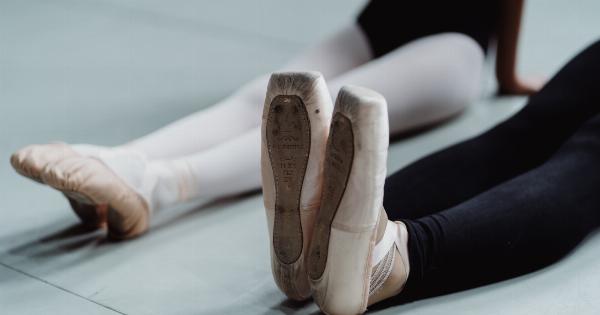Living in a world that constantly emphasizes the pursuit of happiness can be overwhelming. We are bombarded with messages telling us that we need to be happy all the time and that anything less is unacceptable.
But is this constant chase for happiness really making our lives better? Or are we falling into a happiness trap that keeps us constantly dissatisfied and anxious?.
The Myth of Constant Happiness
It is important to acknowledge that happiness is a normal and desirable emotion. Feeling happy can bring a sense of fulfillment and contentment to our lives.
However, the pervasive belief that we should always strive to be happy sets unrealistic expectations. Life is a rollercoaster of emotions, and it is natural to experience a range of feelings, including sadness, anger, and frustration.
The happiness trap lies in the notion that we should be happy all the time and that negative emotions are to be avoided at all costs.
This creates a cycle of dissatisfaction and anxiety, as we constantly feel the need to escape negative emotions and seek immediate happiness.
The Pursuit of Pleasure
In our quest for happiness, we often fall into the trap of pursuing pleasure at any cost. We chase after material possessions, indulge in excessive consumption, and seek out instant gratification.
While these pursuits may provide temporary moments of happiness, they are often short-lived and can lead to a cycle of never-ending desires.
Instead of finding true happiness, we find ourselves constantly craving more and feeling empty when the initial pleasure wears off. This cycle perpetuates the illusion that happiness can only be found outside of ourselves, rather than within.
Escaping the Comparison Game
The rise of social media has exacerbated the happiness trap by fueling the comparison game. We constantly compare our lives to others, judging our own happiness based on external markers such as wealth, success, and relationships.
This constant comparison breeds feelings of inadequacy and keeps us stuck in a perpetual cycle of striving for more.
To break free from the happiness trap, we must learn to shift our focus inward and cultivate a sense of self-compassion.
Instead of comparing ourselves to others, we can practice gratitude for what we already have and learn to appreciate our own unique journey.
Finding Meaning and Purpose
True happiness lies in finding meaning and purpose in our lives. Instead of chasing fleeting moments of pleasure, we can shift our focus towards creating a life that aligns with our values and brings us a sense of fulfillment.
Engaging in activities that bring us joy and fulfillment, nurturing meaningful relationships, and pursuing personal growth are all essential for breaking free from the happiness trap.
By immersing ourselves in experiences that resonate with our core values, we can create a life that is rich in meaning and purpose.
Cultivating Emotional Resilience
Emotional resilience is the ability to bounce back from adversity and manage our emotions effectively. It is an essential skill for navigating the ups and downs of life and breaking free from the happiness trap.
Cultivating emotional resilience involves learning to embrace and accept the full range of human emotions, both positive and negative.
Rather than trying to escape or avoid negative emotions, we can learn to sit with them and explore what they have to teach us.
By developing this skill, we can build emotional strength and resilience, allowing us to navigate life’s challenges with greater ease.
Practicing Mindfulness
Mindfulness is a powerful tool for breaking free from the happiness trap. It involves paying attention to the present moment without judgment and cultivating a non-reactive awareness of our thoughts, feelings, and sensations.
Through regular mindfulness practice, we can become more attuned to our inner experiences and develop a greater sense of self-awareness.
Mindfulness allows us to observe our thoughts and emotions without getting caught up in them, giving us the freedom to choose how we respond to life’s challenges.
Nurturing Self-Care
Self-care is often overlooked in our pursuit of happiness. However, taking care of our physical, mental, and emotional well-being is crucial for breaking free from the happiness trap.
By prioritizing self-care, we can recharge and replenish ourselves, enabling us to show up fully in our lives.
Self-care looks different for everyone, but it can include activities such as exercise, meditation, spending time in nature, engaging in hobbies, and seeking support when needed.
Nurturing ourselves allows us to build resilience, cultivate happiness from within, and break free from the constant chase for external validation.
Embracing Imperfection
Perfectionism is a common trait that can keep us trapped in the pursuit of happiness. The belief that we must always be perfect and have everything together can be exhausting and unrealistic.
Embracing imperfection involves accepting that life is messy and that we are all a work in progress.
By letting go of the need for perfection, we can embrace our flaws and develop self-compassion. We can give ourselves permission to make mistakes, learn from them, and grow.
Embracing imperfection frees us from the constraints of unrealistic expectations and allows us to live more authentically and wholeheartedly.
Building Meaningful Connections
Meaningful connections with others are essential for breaking free from the happiness trap. Humans are social beings, and fostering strong relationships can bring us a deep sense of happiness and fulfillment.
Building meaningful connections involves cultivating empathy, active listening, and vulnerability.
By forming authentic connections with others, we can experience a sense of belonging and deepen our understanding of ourselves and the world around us.
Investing time and energy into nurturing relationships allows us to break free from the isolating effects of the happiness trap and find true connection and happiness.































